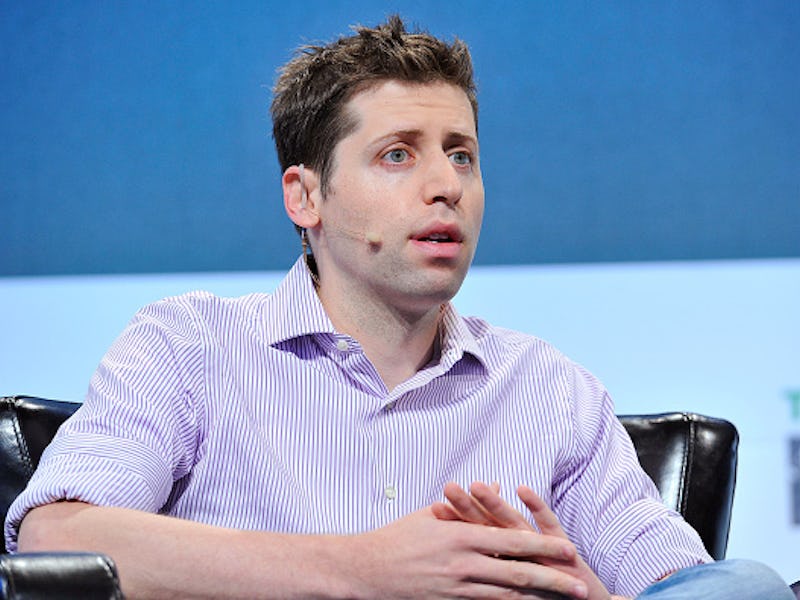Y Combinator President Thinks We’ll All Get a Basic Income in 50 Years
So, Sam Altman, will giving everyone free money end poverty or feed social collapse?

The secret’s out: Y Combinator has announced the first project of YC Research, the company’s ambitious new research arm. What nagging question is on the mind of its president, Sam Altman? It’s universal basic income — the premise that if we give every person enough money to survive on, with no strings attached, we’ll have a healthier, happier, more productive citizenry.
The theory has a lot of people rooting for it, and it’s not just the socialists. Conservatives are drawn to the idea of a simple system of social welfare that eliminates the need for an army of public servants playing the role of police officer and nanny.
As for Altman, he’s pretty sure that a basic income is coming, ready or not.
“I’m fairly confident that at some point in the future, as technology continues to eliminate traditional jobs and massive new wealth gets created, we’re going to see some version of this at a national scale,” he writes on the company’s blog.
Cash money.
But better to be ready than not, he reasons. And so YC Research plans to hire a researcher for a five-year study that will give a basic income to a group of Americans, to see what they do.
“Do people sit around and play video games, or do they create new things? Are people happy and fulfilled? Do people, without the fear of not being able to eat, accomplish far more and benefit society far more? And do recipients, on the whole, create more economic value than they receive?” asks Altman.
“50 years from now, I think it will seem ridiculous that we used fear of not being able to eat as a way to motivate people. I also think that it’s impossible to truly have equality of opportunity without some version of guaranteed income. And I think that, combined with innovation driving down the cost of having a great life, by doing something like this we could eventually make real progress towards eliminating poverty.”
Basic income experiments have been done elsewhere, and the results tend to show that giving people a guaranteed income reduces strain on health care and other social services.
The major criticism of the idea is that it disincentivizes working, which of course it does, to a degree. But this is an argument against the basic income only if you believe that working for a salary is a moral and social good, whereas not doing so is a sign of moral failure. Take a single mother whose social support depends on her having a job. She’s more likely to seek one out than if funds flow with no strings attached. But where is her time better spent? Flipping burgers for $7.25 an hour, or giving her children the care and attention they need?
Society has to ask where it would rather put its money. On one side: her living expenses to stay home. On the other: the bills for welfare agents to check up on her, the hospital bill when she reaches the end of her rope, the prison bill when her inattention to her son leads him to petty crime and drug dealing.
Someone will argue that if the government gave everyone enough money to live, no one would work and the system would collapse. Ask that person if they would stop working tomorrow if the government announced they would get a $11,770 annual bonus.
He might answer that sure, they would continue to work, but another less savory character might not. He worries about the freeloader problem because it threatens his sense of fairness — why should he choose to work so that others may choose not to?
But thought of another way, what could be more fair and more libertarian than giving every citizen an equal amount of money to spend on what they please — goods, services, or leisure?
And if the system delivers what it promises — less bureaucracy and fewer social and health problems — then everyone, including your friend worrying about the freeloaders, ends up living in a better world.